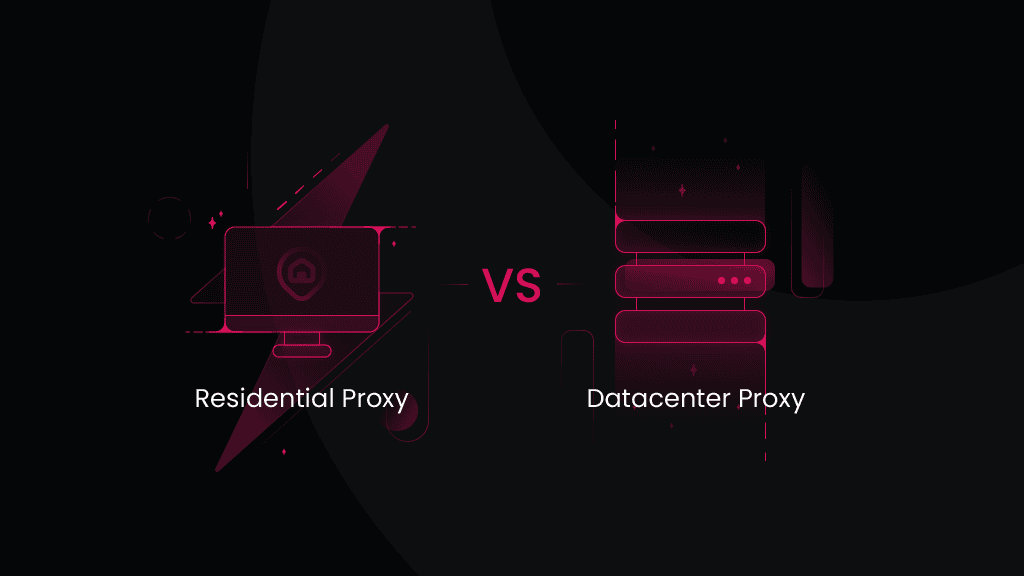Simple Proxy Integration with Chameleon Mode
Manage multiple accounts, overcome CAPTCHAs, and enhance your online anonymity by pairing Decodo residential proxies with Chameleon Mode antidetect browser.
115M+
ethically-sourced IPs
#1
response time
99.86%
success rate
99.99%
uptime
<0.6s
response time
What is Chameleon Mode?
Chameleon Mode is a powerful antidetect browser that allows users to manage multiple browser profiles, automate various tasks, bypass geo-restrictions, and avoid IP bans while browsing online.
Intuitive interface
Manage multiple browser profiles in just a few clicks straight in your Chameleon Mode antidetect browser, avoiding complex user flows and streamlining your workflow.
Account sharing
Share accounts with your team, making it seem like you're all in the same office, and complete cross-team tasks without delays while saving your budget.
Unique fingerprints
Hide your tracks and present yourself as a different user in every antidetect browser instance, ensuring complete anonymity, zero IP blocks, and CAPTCHAs.

Why residential proxies?
Decodo's residential proxies with a massive 115M+ IPs spanning 195+ global locations, combined with Chameleon Mode antidetect browser, is a true powerhouse combo for every use case. You can stay safe and sound when managing multiple accounts, overcoming region-specific restrictions, monitoring price fluctuations, or simply collecting real-time data.
Since residential IPs originate from real household devices connected to the local network, targets treat proxies as genuine internet users, helping you to overcome CAPTCHAs or blocks. Give residential proxies a try with a 3-day free trial.
Set up Decodo proxies with Chameleon Mode
To get started, head to the Chameleon Mode website and choose a subscription that suits your needs. You’ll receive the credentials in your email. Use them to log in to the customer portal, where you can access the license key and download the antidetect browser available for both Windows and MacOS. After installing the app, you’ll now need to integrate the proxies.
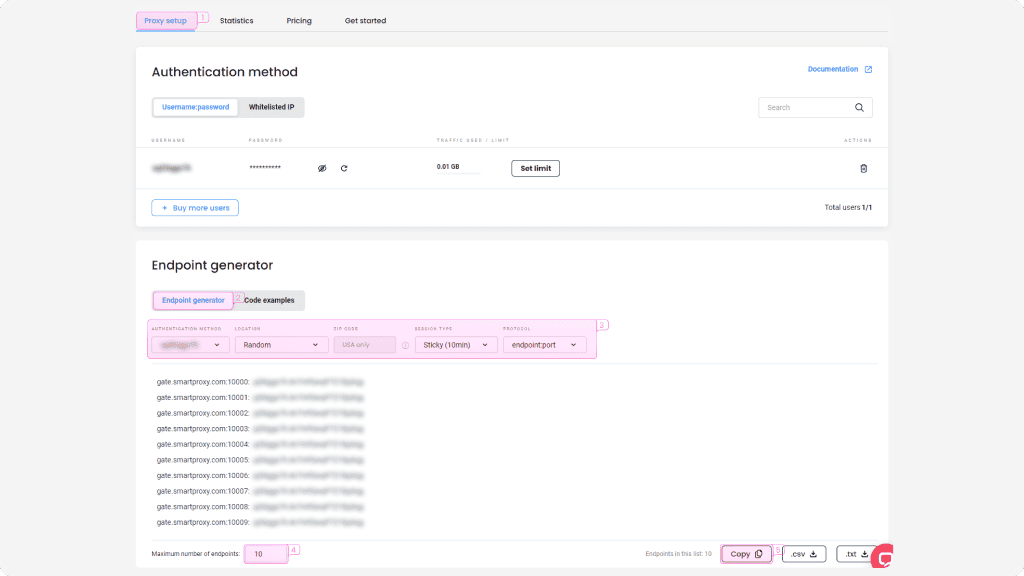
Integration with residential proxies
Log in to your Decodo dashboard, navigate to the Residential tab under the Residential Proxies column on the left panel, and choose a subscription. Then, follow these easy steps:
- Open the Proxy setup tab.
- Configure the parameters. Set your authentication method, location, session type, and protocol.
- Select the number of proxy endpoints you want to generate (default – 10).
- Copy the endpoints by clicking the Copy icon.
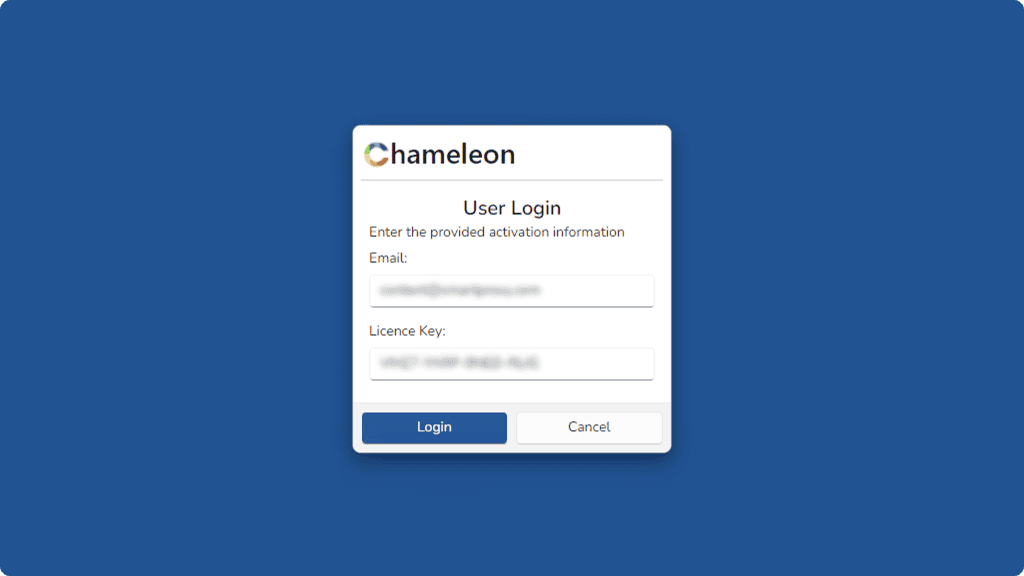
Setting up proxies with Chameleon Mode
To integrate Chameleon Mode with Decodo residential proxies, open the antidetect browser and then:
- Enter your account credentials – email and license key.
- Press Login.
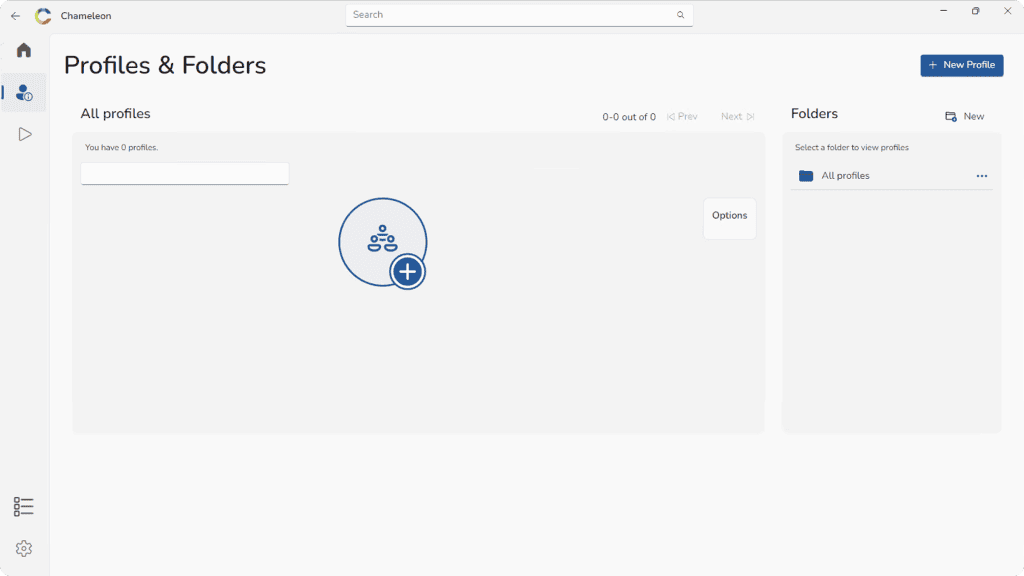
3. On the dashboard, click on the Profiles icon on the left-side menu.
4. In the Profiles & Folders window, click on the New Profile button.
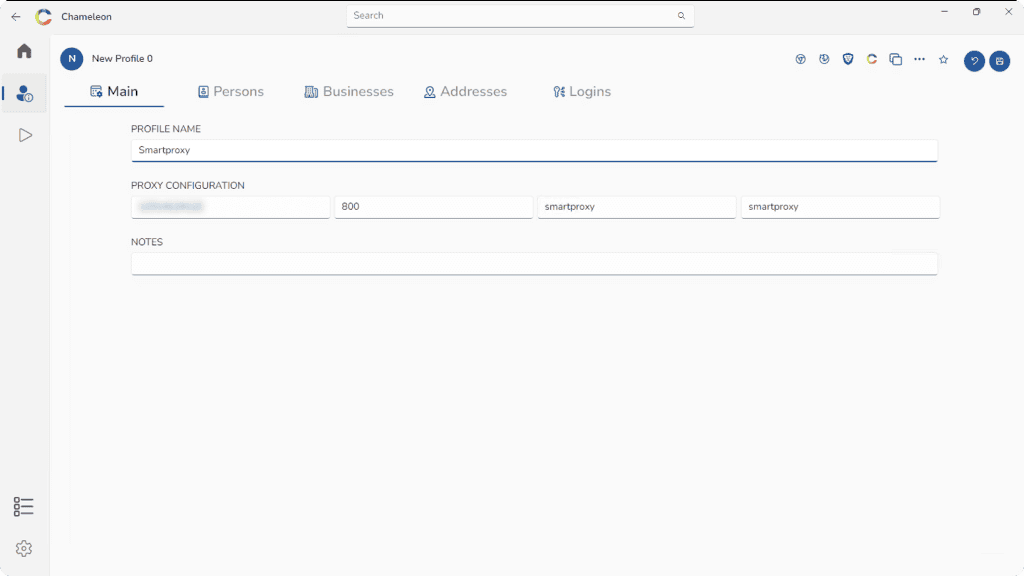
5. Connect your proxies by adding IP address, host, port, username, and password. You can also add a profile name and a note to your new browser profile.
6. You can also tweak other settings and grant the profile access to other team members.
Explore other integrations
Pair Decodo residential proxies with a range of third-party tools and access the web without restrictions.
With each residential proxy plan, you access:
115M+ ethically-sourced IPs in 195+ locations
HTTP(S) & SOCKS5 support
Continent, country, state, city, ZIP code, and ASN-level targeting
Rotating and sticky session options
<0.6s avg. response time
99.86% success rate
99.99% uptime
Seamless integration with scraping tools and bots
24/7 tech support
14-day money-back
SSL Secure Payment
Your information is protected by 256-bit SSL
What people are saying about us
We're thrilled to have the support of our 130K+ clients and the industry's best
Attentive service
The professional expertise of the Decodo solution has significantly boosted our business growth while enhancing overall efficiency and effectiveness.
N
Novabeyond
Easy to get things done
Decodo provides great service with a simple setup and friendly support team.
R
RoiDynamic
A key to our work
Decodo enables us to develop and test applications in varied environments while supporting precise data collection for research and audience profiling.
C
Cybereg
Featured in:
Explore our other proxy line products
What are proxies?
A proxy is an intermediary between your device and the internet, forwarding requests between your device and the internet while masking your IP address.
Residential Proxies
from $1.5/GB
Real, physical device IPs that provide a genuine online identity and enhance your anonymity online. Learn more
ISP Proxies
from $0.27/IP
IPs assigned by Internet Service Providers (ISPs), offering efficient and location-specific online access with minimal latency. Learn more
Mobile Proxies
from $2.25/GB
Mobile device based IPs offering anonymity and real user behavior for mobile-related activities on the internet. Learn more
Datacenter Proxies
from $0.020/IP
Remote computers with unique IPs for tasks requiring scalability, fast response times, and reliable connections. Learn more
Site Unblocker
from $0.95/1K req
A powerful application for all proxying activities offering dynamic rendering, browser fingerprinting, and much more. Learn more
Decodo Blog
Build knowledge on residential proxies, or pick up some dope ideas for your next project - our blog is just the perfect place.
Most recent

AI Web Scraping With Python: A Comprehensive Guide
AI web scraping with Python lets you extract data from websites without relying on fragile parsing rules. AI helps handling page inconsistencies and dynamic content, while Python continues to manage fetching. In this guide, you'll see how models extract data from unstructured pages, reduce manual parsing rules, support automation, and scale into reliable pipelines.
Mykolas Juodis
Dec 23, 2025
6 min read
Frequently asked questions
What is Chameleon Mode?
Chameleon Mode is an antidetect browser that helps users manage and keep separate browser profiles, automate routine tasks, and leverage advanced fingerprinting for various use cases.
What is Chameleon Mode used for?
With the Chameleon Mode antidetect browser, users can manage multiple accounts online, complete their affiliate, SEO, and AdTech tasks without facing CAPTCHAs, geo-restrictions, or IP bans.
Be aware that any tools mentioned in this article belong to a third party, not Decodo. Therefore, Decodo will not be responsible for any of the services offered by the third party. Make sure to thoroughly review the third-party’s policies and practices, or do your due diligence, before using or accessing any of their services.
The Fastest Residential Proxies
Dive into a 115M+ ethically-sourced residential IP pool from 195+ locations worldwide.
14-day money-back option








